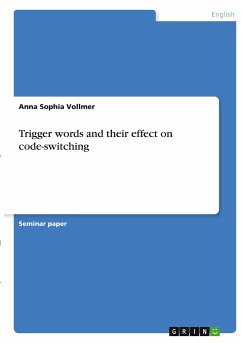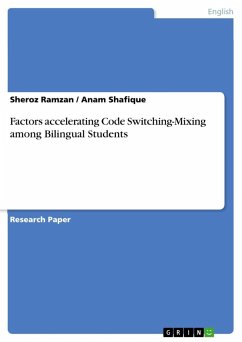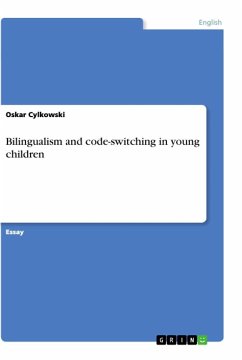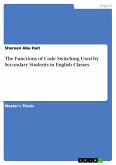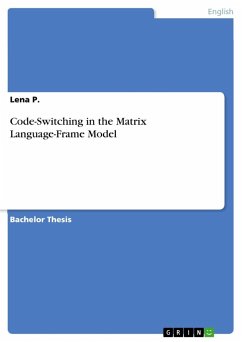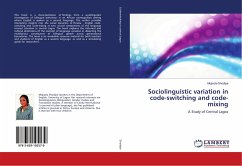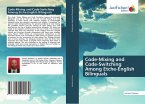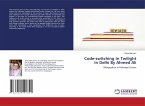Seminar paper from the year 2017 in the subject English Language and Literature Studies - Linguistics, grade: 1,3, Humboldt-University of Berlin (Institut für Anglistik/Amerikanistik), language: English, abstract: It is not uncommon for bilinguals or multilinguals to sometimes switch back and forth between two or more different languages within a single conversation or even a single sentence. This phenomenon is called "code-switching", and has been studied extensively from sociolinguistic and structural perspectives. In this paper, however, it will be examined from a psycholinguistic approach.As code-switching occurs rather naturally and in informal settings, psycholinguists - who usually seem to prefer working with controlled data - tend to refrain from studying the psycholinguistic aspects of this phenomenon. Thus, unfortunately, much experimental data does not seem to exist in this research field so far.Nonetheless, the study of code-switching with naturally occurring data could certainly provide some interesting insights into the cognitive processes of bilinguals when switching languages, and has thus been increasingly analyzed and evaluated with corpus data in recent years, for example, by Broersma & De Bot, 2006; Broersma, 2009, whose findings will be summarized and discussed in this paper. The aim here is to present support for language switches induced by so-called "trigger words", and to analyze how and to what extent certain words can trigger code-switching.

